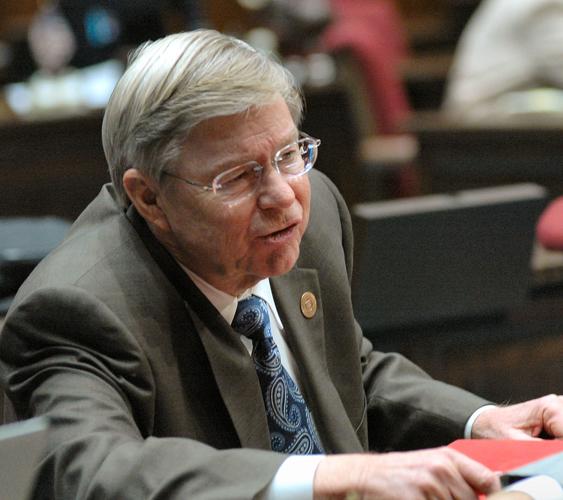A Tucson Republican lawmaker wants people who are legally entitled to use medical marijuana to pay for a program to discourage drug use among others .
Rep. Vince Leach introduced HB 2066 which would let the state Department of Health Services use what it does not need to run the program for “education, awareness and prevention messaging.” He said the state is not doing enough.
Separately, Sen. David Farnsworth, R-Mesa, wants to take $5 million out of the funds to give to law enforcement agencies “for crimes related to drug trafficking and distribution.” His proposal is SB 1061.
There’s plenty of money to spend: At last count the health department had amassed more than $40 million.
And that situation is likely to continue. Figures obtained by Capitol Media Services show the state collected $24.9 million in fees last year from patients, caregivers, dispensaries and growers. Expenses during that same period to run the program were $11.2 million.
That annual surplus — and the ever-increasing bank account — exist solely because the $150 annual fee set by the health department after voters first approved medical marijuana in 2010 is bringing in far more than needed to administer the program. Will Humble who was health director at the time, acknowledged he underestimated how many people would qualify to be certified by the state to purchase the drug.
In fact, Humble was preparing to reduce the fees when he quit after the 2014 election of Gov. Doug Ducey.
But current Health Director Cara Christ has shown no interest in following through. So two patients have filed suit to force her to do so.
If either or both measures become law, that would undermine that lawsuit because it would cut into and possibly eliminate the surplus that the litigation hopes to have refunded to patients in the form of lower fees.
Central to the question is whether medical marijuana patients should be subsidizing anti-drug efforts.
Attorney Sean Berberian, who is pursing the legal action to reduce the fees, said it’s not right to force patients to pay more than necessary.
Leach, for his part, is not sympathetic to that concern, saying he’s not convinced that all who are getting the drug legally really need it for legitimate medical purposes.
“If you break down the number of people that have (medical marijuana) cards, the preponderance, by far, is ‘chronic back pain,’” he said. And Leach sniffed at the fact that only those with a doctor’s recommendation can get the drug.
“We know there’s only a limited number of doctors issuing the vast majority of these,” he said. Leach also said he’s not convinced that the doctors are actually reviewing the medical records of patients — something they’re supposed to do — before issuing the recommendation that allows people to get the state-issued card to purchase and use the drug.
So from Leach’s perspective, if they want to use marijuana — something he and lawmakers are powerless to stop since the law was approved by voters — they should contribute to the cost of keeping others from taking it up. And he wants a “meaningful” campaign, “not just putting some sign up on a billboard.”
“We’re obviously not doing a good job of educating people about the harmful effects of drugs, whether they be alcohol, whether they be medical marijuana, whether they be opioids,” Leach said.
He also wants an extensive — and expensive — campaign to keep children from consuming the drug, whether intentionally or by accident.
“We should be spending more and more and more of the dollars that are coming in, the dollars that are available, to make sure that our children in school aren’t taking what they think are gummy bears or strawberries or candy when in fact it is medical marijuana,” Leach said.
Along the same lines, Leach also has introduced HB 2064 which would make it illegal to acquire, possess, manufacture or sell marijuana that is packaged or labeled “in a manner that is attractive to minors.”
That would outlaw cartoons on the label. Also forbidden would be putting any sort of symbol or celebrity image “commonly used to market products to minors.”
And the packaging could not have a design, brand or name that looks like a candy bar or anything else that minors might buy.
All three measures could have a significant hurdle.
Because the 2010 law was approved by voters, the Arizona Constitution allows changes only with a three-fourths vote of both the House and Senate. And even if Leach or Farnsworth can get that margin, any change is subject to the separate constitutional requirement that it “furthers the purpose” of the original law.
No date has been set for a hearing on any of the measures.





